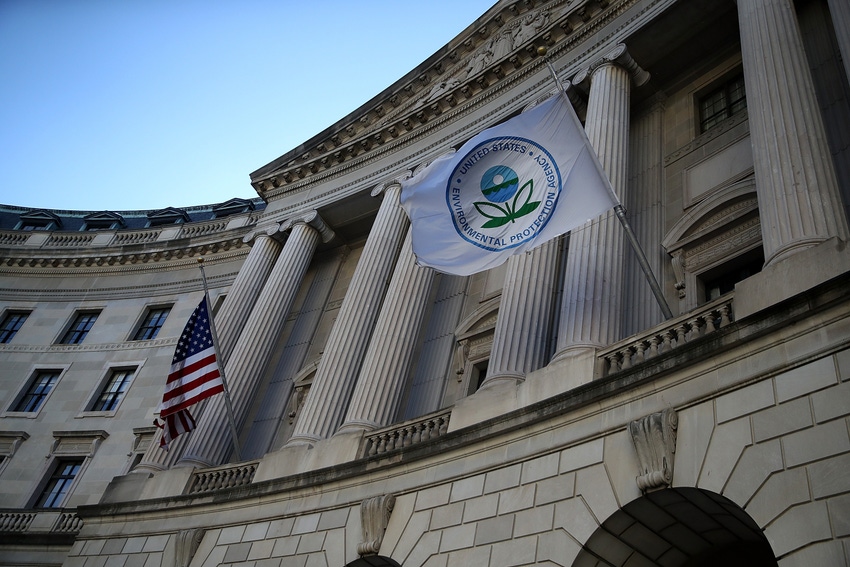Testimony offers insight on real-world ramifications of EPA’s proposed renewable volume obligations.

The Environmental Protection Agency held a public hearing Wednesday to review the agency’s supplemental proposal to the 2020 renewable volume obligation (RVO) rule-making under the Renewable Fuel Standard (RFS).
The hearing follows an Oct. 4 announcement from President Donald Trump directing EPA to follow the letter of the law and keep the RFS whole by using the three-year average of renewable fuel gallons actually waived by EPA to account for small refinery exemption (SRE) waivers going forward. EPA, however, in its proposal released Oct. 15, proposed to account for waivers based on the U.S. Department of Energy’s (DOE) recommendations, rather than the actual gallons waived by EPA.
“The problem with this proposal is that EPA has seldom followed DOE’s recommendations in deciding SRE petitions. For the 2016-2018 compliance years, DOE, on average, recommended that 7.3 billion gal. of gasoline and diesel be exempted from RFS obligations, but EPA actually exempted an average of 12.8 billion gal. --75% more,” Renewable Fuels Assn. president and chief executive officer Geoff Cooper testified.
A consistent message from ethanol supporters delivered at the hearing was the need for EPA to follow the intent of Congress by mandating the 15 billion gal. mandate of corn-based ethanol as well as offering SREs only for those refineries truly experiencing hardships.
Cooper recounted the impact of the waiver, with lost demand leading to the closure or idling of 19 ethanol plants and the decimation of renewable identification number prices – blending credits that measure the success of the RFS program and the ethanol industry.
Iowa secretary of agriculture Mike Naig said EPA must consider the real-world ramifications of these decisions. “These rules are not merely words and numbers on paper, these rules have real impact on people in Iowa and across the country. Small rural communities in my home state, like Crawfordsville, Merrill and Sioux Center, where ethanol plants have shut down, are feeling the effects firsthand. Hundreds of families have been impacted by these closures and have been forced to make hard, life-changing decisions because of the EPAs failure to uphold our President’s promise,” Naig testified.
He added, “EPA has granted 85 small refinery waivers since 2016, and we can’t ignore the damage that has been done.”
James D. Carstensen, federal government affairs manager for DuPont, testified, "The EPA is using the same rule that promises to fix the problems they caused to reiterate and establish the agency’s right to continue the practices which have caused the problems. This is one of the best examples of bureaucratic hubris I have ever witnessed."
Naig noted that an RVO rule that lives up to Trump’s 15 billion gal. commitment “will spark demand in the marketplace. It will give blenders confidence that they can resume their production and still be able to make payroll. It will encourage fueling stations to invest in E15 pumps.”
Growth Energy CEO Emily Skor testified that urged regulators to use the rolling average of actual exempted volumes from the three most recently completed compliance years in the final rule, as promised by the Administration. She also called on the agency to formally bind itself to the revised methodology for future years and expedite work to remove additional barriers to the sale of E15 blends.
“EPA must fix this rule immediately by properly accounting for exempted gallons and restoring lost demand. American biofuel producers and farmers cannot afford anything less,” Skor concluded.
Minnesota farmer and National Corn Growers Assn. Ethanol Action Team member Brian Thalmann said he’d rather be in the field harvesting, but the issue is too important to corn farmers.
“As farmers, we follow rules put in place by state and federal agencies, including the EPA. We are simply asking EPA to do the same for us,” Thalmann said. “Good intentions don’t provide certainty. Without a binding commitment that the RFS will be kept whole, this rule gives EPA free rein to change direction any time.”
The EPA comment period closes Nov. 29.
About the Author(s)
You May Also Like




.png?width=300&auto=webp&quality=80&disable=upscale)
